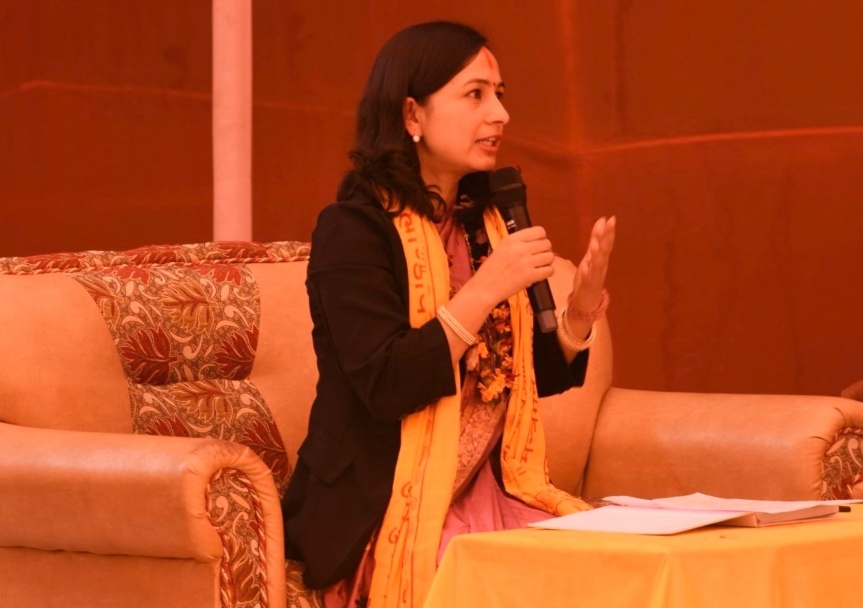Baglung-born environmental activist Silsila Acharya has earned a spot on the BBC’s prestigious list of 100 inspiring and influential women for 2024, a recognition that underscores her relentless dedication to environmental conservation and sustainability. The announcement, made on Tuesday, celebrates Acharya’s remarkable work in waste management, plastic recycling, and empowering marginalized communities. Acharya, who was informed of her inclusion a month ago, expressed her gratitude and renewed commitment to environmental causes. Speaking to Rastriya Samachar Samiti (RSS), she said, “When society recognizes my continuous work on issues of nature and the environment, it motivates me to work even more diligently in this field.”
Acharya, who was informed of her inclusion a month ago, expressed her gratitude and renewed commitment to environmental causes. Speaking to Rastriya Samachar Samiti (RSS), she said, “When society recognizes my continuous work on issues of nature and the environment, it motivates me to work even more diligently in this field.”
Championing Environmental Change
The BBC highlighted Acharya’s work through Abhni Ventures, an organization she co-founded to address Nepal’s pressing plastic waste problem while prioritizing employment opportunities for marginalized communities, especially women. Since its establishment, the venture has been a beacon of sustainable entrepreneurship, turning waste into resources and inspiring communities to adopt eco-friendly practices.
“This recognition will help spotlight Nepal’s environmental challenges and encourage all stakeholders to prioritize these issues,” Acharya said. She further emphasized that her work aims to inspire collective action, particularly in areas often overlooked in policy and public discourse.
A Legacy of Environmental Activism
Acharya’s journey into environmental advocacy began when she chose to pursue environmental science over medicine, a decision driven by her passion for nature. After completing her bachelor’s degree in environmental science from Kathmandu University, she earned a master’s degree in biodiversity and environmental science in Norway through a dual scholarship from the Nepalese and Norwegian governments.
Upon returning to Nepal, she launched a nationwide campaign titled “Thank You, I Will Carry My Own Bag” in 2014, which aimed to discourage the use of plastic bags. Since then, she has worked on numerous initiatives, including Himalayan clean-up campaigns and projects connecting Indigenous women with waste recycling-based entrepreneurship.
Beyond Recognition
This international recognition adds to Acharya’s growing list of accolades, including being named one of Nepal’s 50 most influential women by Online Khabar and receiving honors from the Nepal Army for her contributions to the Himalayan clean-up initiative.
Looking ahead, Acharya plans to focus on conserving Nepal’s mountain ecosystems and water resources. “The campaign to connect women and marginalized communities with income generation through environmental entrepreneurship will also continue,” she said.
She is currently leading government efforts to assess the scale of plastic waste in Nepal and develop comprehensive strategies for its management. “Waste management must start at every household. Together, we can build a waste-free society and protect the environment for future generations,” Acharya said.
Inspiring Future Generations
Acharya’s inclusion in BBC’s list is a moment of pride for Nepal. It highlights the nation’s environmental challenges on the global stage while encouraging policymakers to adopt progressive reforms.
Her story is not just about individual achievement but also a call to action for a cleaner, greener, and more equitable world. As she continues her work, Silsila Acharya remains a beacon of hope and inspiration for environmental activists everywhere.